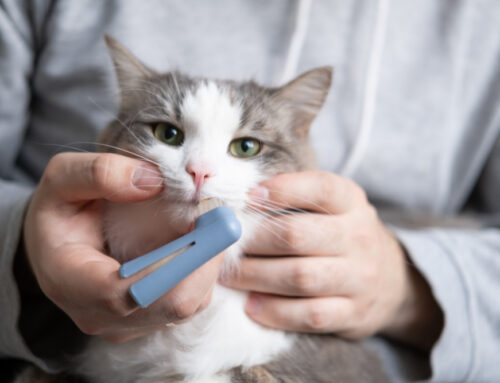Many pets suffer from itchy, inflamed skin, and the problem can be frustrating to treat. Nonstop itching is extremely uncomfortable for your pet and can lead to skin excoriations and serious secondary infections. Our Cane Bay Veterinary Clinic team offers tips to help alleviate your pet’s itchiness.
#1: Schedule a veterinary visit
Itchy skin is a serious health condition that requires veterinary attention. Many conditions can lead to itchy skin, and our veterinary team will perform diagnostics to determine the underlying cause to initiate an appropriate treatment strategy. Your pet will likely receive the following diagnostics:
- History — Our Cane Bay Veterinary Clinic team must learn about your pet’s medical history so we can help identify the cause of your four-legged friend’s itchy skin. Particularly important information includes any skin conditions, the date of their current condition’s onset, and their current medications, including year-round flea prevention.
- Physical examination — We assess your pet from nose to tail, evaluating their skin lesions and noting where lesions are located on your pet’s body.
- Skin cytology — We will evaluate your pet’s skin cells under the microscope to look for bacteria, yeast, and other problematic organisms.
- Blood work — Blood work, including a complete blood count (CBC) and biochemistry profile, helps our team exclude certain issues and allows us to assess their overall health.
- Skin scraping — To assess your pet’s skin cells and look for parasites and other factors that may be contributing to your pet’s itchiness, our team will take a skin sample by scraping their skin with a dull scalpel blade.
- Culture — Many itchy pets have primary or secondary skin infections, and we may take a sample to submit for culture so we can prescribe an appropriate antimicrobial.
- Skin biopsy — In some cases, we may take a skin biopsy to determine the cause of your pet’s itchiness.
- Medication trial — We may see how your pet responds to certain medications to help identify the cause of their itchiness.
#2: Provide year-round flea prevention for your pet
Flea allergy dermatitis (FAD) is the most common cause of pet itchiness. An allergy to flea saliva causes FAD, and an affected pet can experience extreme itchiness after receiving only one flea bite. Other FAD signs include hair loss and red spots on a pet’s lower back, thighs, and abdomen. An affected pet will groom constantly, often removing live fleas from their coat, so although you may not find a flea on your four-legged friend’s body, this does not rule out FAD. In some cases, the fleas leave behind flea dirt (i.e., flea feces), which appear as tiny black specks in a pet’s coat and bedding. The only way to prevent FAD is to eradicate all fleas from your pet and their environment by doing the following:
- Flea control — Provide year-round flea prevention to your itchy pet and all pets in your home.
- Bathing — By bathing your pet, you can help remove fleas and flea dirt and calm your four-legged friend’s irritated skin. If you plan to bathe your pet, wait 48 hours after administering their flea prevention to ensure the product has properly absorbed into your pet’s skin.
- Environmental management — Eradicate fleas from your home by laundering bedding, vacuuming and sweeping floors, and treating with an appropriate insecticide. Fleas have a complicated life cycle, and you likely will need to perform these steps multiple times to kill them at every life-cycle stage.
#3: Don’t change your pet’s food
Some pet owners think they can relieve their furry pal’s itchiness by switching their food to a grain-free diet, but food allergies aren’t common in pets. FAD and atopy (i.e., environmental allergies) cause itchiness in pets more often than food allergies. In addition, when a pet has a food allergy, they are typically reacting to a protein, such as beef, chicken, eggs, or dairy, as opposed to grain. The only way to diagnose a food allergy definitively is through a food elimination trial, which entails:
- Feeding a hypoallergenic diet — You must feed your pet a hypoallergenic diet for about eight weeks. Your veterinarian will recommend a diet that contains a novel protein, such as venison, bison, duck, or kangaroo, or a hydrolyzed protein diet in which the protein is broken down to the point that the body no longer recognizes it.
- Remaining committed — During the eight-week diet trial, your pet can’t eat any other food, including table scraps, unapproved treats, and flavored medications and supplements.
- Reintroducing ingredients — Once your pet’s itchiness resolves, you can reintroduce ingredients from their previous diet to identify the problematic ingredient.
- Avoiding the problematic ingredient — To prevent your pet from having a reaction after the problematic ingredient has been identified, do not feed them any food that includes that ingredient.
#4: Monitor your pet’s itchiness
If your pet is itchy every year at the same time, they likely have atopy. This condition is caused by an allergic reaction to environmental substances such as dust mites, grass and tree pollens, and mold spores. If your pet is atopic, allergy testing can be performed through a blood test or intradermal testing, to help identify the substances that trigger your four-legged friend’s reaction. We will use the results to create allergy shots to help treat your pet’s condition. This treatment involves administering gradually increasing allergen doses to desensitize them to the problematic substances. Most pets respond positively to this treatment, but allergy shots can take 6 to 12 months to become effective.
#5: Follow your veterinarian’s advice

Itchy skin can be frustrating to manage and typically involves a multimodal treatment approach. You must follow your veterinarian’s treatment strategy to a T to help keep your pet as itch-free as possible. Our team will devise an appropriate management plan based on your pet’s specific condition, but general treatments include:
- Flea prevention — Year-round flea prevention is necessary for all itchy pets, because fleas often complicate many itchy skin conditions.
- Allergen avoidance — Ensure your pet avoids all causative allergens. To accomplish this goal, follow these tips:
- Bathe your pet weekly
- Wipe your pet’s coat with a wet cloth between baths
- Dust and vacuum your home frequently
- Keep your doors and windows closed
- Keep your pet indoors when mowing your lawn
- Medications — Medications, including steroids and nonsteroidal anti-itch medications, are often prescribed to manage your pet’s itchiness. To ensure your pet’s itchiness is resolved, administer their veterinary-prescribed medications as directed.
- Omega-3 fatty acids — These supplements can help reduce inflammation and itchiness.
If your pet suffers from itchy, inflamed skin, follow our tips to help them get relief. To alleviate your four-legged friend’s itchy skin, we must determine their condition’s underlying cause. Schedule your pet’s allergy consultation with our Cane Bay Veterinary Clinic team.







Leave A Comment